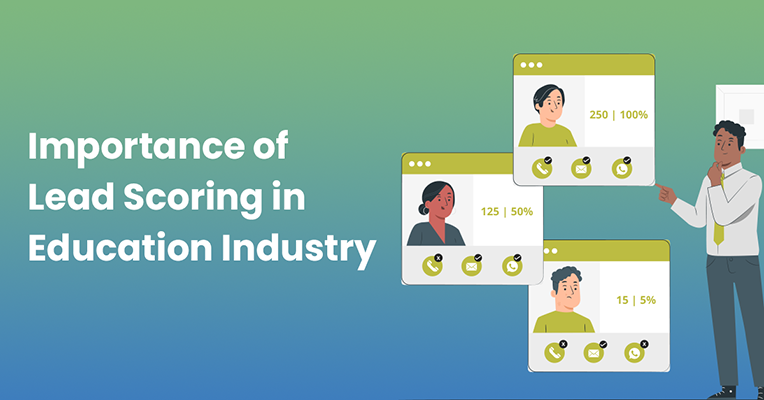Meritto (formerly NoPaperForms) presents this informative blog to shed light on the concept of lead scoring and its significance in customer relationship management (CRM) systems. Our objective is to help you gain a comprehensive understanding of lead scoring and how it can assist in prioritizing and nurturing leads for successful conversions. In this blog, we will delve into the numerical value assigned to leads, known as lead scores, which indicate their level of sales readiness. By considering factors such as demographics, behavior, and engagement, lead scoring helps identify leads with higher potential for becoming paying customers. We will also explore how lower scores highlight the need for further nurturing before leads become sales-qualified. Join us as we unlock the power of lead scoring and equip you with the knowledge to optimize your lead management process. Let’s embark on this enlightening journey together!
Quick Read: What is Lead Management?
How is Lead Score in CRM Calculated in a CRM?
A lead score in a CRM system is typically calculated using a combination of factors, such as demographics, behaviour, and engagement with the company’s marketing materials. The exact calculation will vary depending on the specific Education CRM system and the company’s sales and marketing goals. Some common factors are:
- Demographics: Information such as job title, industry, and company size can be used to determine a lead’s level of authority and decision-making power.
- Behaviour: This can include information such as website visits, email opens, and clicks, as well as engagement with social media and other marketing materials.
- Engagement: This can include information such as the number of times a lead has filled out a form or attended a webinar.
Each of these factors can be assigned a numerical value, and the values can be combined to calculate a Lead score, For example, a lead who has a high-level job title, has visited the website multiple times, and has filled out a form may be assigned a higher lead score than a lead who has a lower-level job title and has only visited the website once. It’s also important to note that Lead Scoring can be both manual or automated.
In manual scoring, a sales representative or a marketer assigns the score to a lead based on the information they have, while in automated scoring, a set of predefined rules and formulas are used to calculate the score. Also, the calculation of LS is not a one-time process, it is an ongoing process and lead score may change as the lead interacts with the company’s marketing and sales efforts.
Quick Read: Debunking Top 10 Myths about Education CRM
Reasons why Lead Scoring is Important for Educational Organisations?
As we are clear with the understanding of what is lead scoring, here are some reasons why LS is important for educational organisations:
- Prioritisation of Leads: Lead scoring allows educational organisations to prioritise leads based on their likelihood of becoming paying students. This enables institutions to focus their efforts on the most promising leads, increasing the efficiency and effectiveness of their recruitment efforts.
- Personalised Follow-up: By identifying leads that may need additional nurturing before they are ready to enrol, lead scoring can help educational organisations create targeted, personalised follow-up campaigns that can help move leads further down the enrollment funnel.
- Data-driven Decision-making: Lead scoring provides a more objective and data-driven approach to lead management, rather than relying on gut feelings or intuition. It allows organisations to identify patterns and trends in their leads that can inform future recruitment strategies.
- Improved Communication: Lead scoring can help organisations to communicate more effectively with leads by providing insight into the level of engagement and interest of a lead. This allows institutions to tailor their communication to the lead’s level of engagement, improving the chances of converting the lead into a student.
- Increased Enrolment: By focusing on the most promising leads, educational institutions can increase their enrolment numbers, resulting in higher revenues and more successful recruitment efforts.
In summary, Lead Scoring helps educational organisations to prioritise the leads, target the most promising leads, increase the efficiency and effectiveness of the recruitment process, provide an objective, data-driven approach to lead management, improve communication and ultimately increase enrolment numbers.
Switch to Meritto’s (formerly NoPaperForms) Education CRM today and enhance your lead conversion rate with our exclusive automated lead score generator. Schedule a demo to know more.




